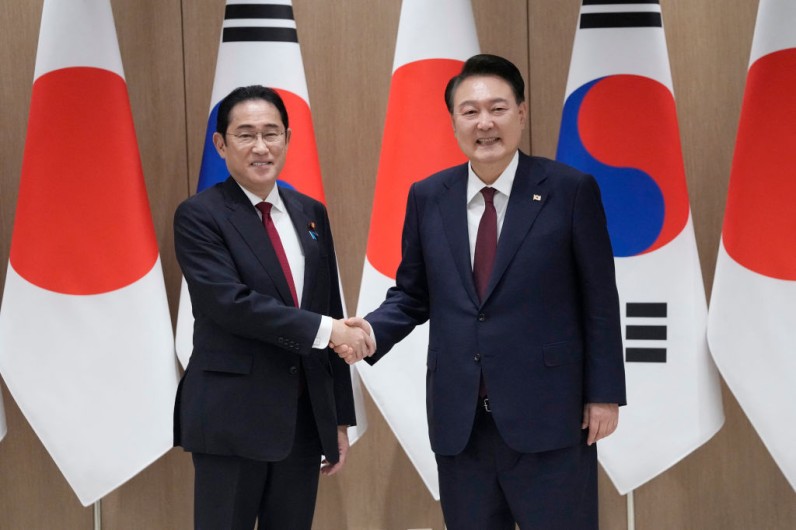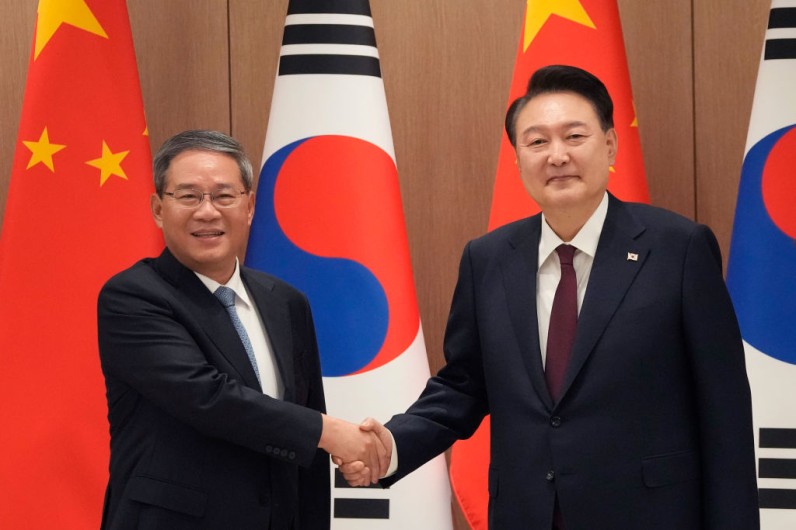
The leaders of South Korea, Japan, and China are set to meet once again Monday (May 27) for a trilateral summit in Seoul, the first time such a top-level meeting has happened between the Asian nations in over four years.
The meeting would seek to deepen commercial ties to bolster their economies, including climate response and a possible relaunch of negotiations over a free trade agreement (FTA).
Prior to Monday's summit, South Korean President Yoon Suk-Yeol met separately with Chinese Premier Li Qiang and Japanese Prime Minister Fumio Kishida on Sunday (May 26). None of the three were in office during the last time the three nations had a trilateral meeting in Chengdu, China in 2019.
The three leaders are expected to release a joint statement after the summit, with sources telling Nikkei that a draft version said that their countries aimed to restart trade talks.
Particularly, the draft stated that the leaders would "hold discussions" to "accelerate the negotiations" for what they called a "mutually beneficial ... high-quality and inclusive" FTA.
Barriers to Free Trade Agreement

However, for the FTA to work, the three countries have to tackle barriers relating to national security, particularly with China's territorial disputes with Japan, South Korea, and Taiwan, as well as the perennial conflict between the two Koreas.
Such matters have been exacerbated by the election of Taiwanese President William Lai Ching-te and North Korea's development of nuclear weapons.
As host of the summit, Yoon tried to emphasize the common things the three nations have and the potential benefits of such closer cooperation.
Yoon specifically highlighted in his meeting with Li that the three nations needed to bolster their shared mechanisms for protecting supply chains for key minerals and other raw materials. He also aimed at improving diplomatic relations with Japan since taking office two years ago to move beyond the historical animosity brought about by Japan's colonial rule of the Korean Peninsula from the early 20th century to the end of the Second World War.
Whatever the result of the trilateral summit, Stanford University East Asia policy expert Daniel Sneider told the Washington Post that the talks Japan and South Korea have with China should not be a "cause for alarm" for officials from Washington, adding that anti-China stakeholders should be reminded that the allies of the United States "have their own interests" that they may not always be the same as Washington's.







Join the Conversation